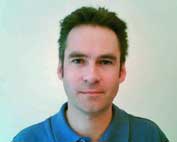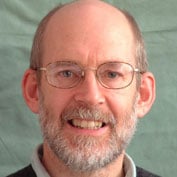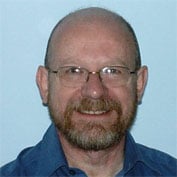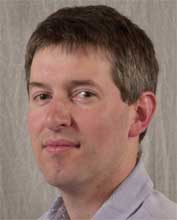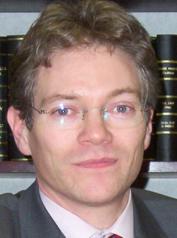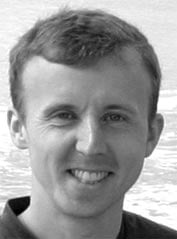Events Programme for 2005-2006All meetings, unless otherwise stated, are held on Wednesdays at 6:30 pm at: The Royal Pharmaceutical Society, 36 York Place, Edinburgh EH1 3HU. The location is marked on this street map. Please note that, for security reasons, the Royal Pharmaceutical Society keep their main door locked. Please ring the buzzer to gain admittance. Refreshments are available from 6:10 pm for all the meetings held at the Royal Pharmaceutical Society - that is, excluding the 16th November and 12th April meetings. Meetings qualify for BCS CPD credit. Non members are welcome to all meetings. See also: other events in and around Edinburgh that may be of interest to Information Systems Professionals. A list of BCS Edinburgh Branch events from previous years may be found here. 5th October 2005 - Software Verification: Grand Challenge or Emerging Technology?Speaker: Andrew Ireland, Heriot-Watt UniversityThe dream of being able to routinely verify programs using formal reasoning has a long history, dating back as far as the 1940's. In my talk I will survey this history, outline where I believe the challenges lie today and highlight areas where the research is making an impact on industry. About the speaker
26th October 2005 - The Semantic WebSpeaker: Henry Thompson, Informatics, Edinburgh UniversityThe phrase "breakthrough in enthusiasm" was once used to convey a certain scepticism about the extent to which any real substance could be found to support a much-publicised new technology. In this talk I'll put current enthusiasm for the Semantic Web into some historical perspective, tracking a common thread from the origins of Artificial Intelligence in the 1960s through Expert Systems and Autonomous Agents up to the present. I'll also look at the evolution of the Semantic Web vision from its initial focus on document metadata to its current emphasis on information integration. I'll conclude with some observations about what the prospects are for real value to flow from all this. About the Speaker
16th November 2005 - IT at the Scottish ParliamentThis event will be held at the Scottish Parliament and include a tour of the building. Presentation from this event (pdf) 7th December 2005 - Digital Design StudioSpeaker: Martyn Horner, Glasgow School of Art.The Digital Design Studio of the Glasgow School of Art combines a lively academic research programme with commercial projects and a well-regarded post-graduate course in computer animation. This talk will explain and explore the life of this digital-age off-shoot of Scotland's most famous art school. About the Speaker
11th January 2006 - Biometrics and IdentitySpeaker: Gavan Duffy, Generics Group Ltd.Triggered in part by the events of 9/11 and perhaps more profoundly by opportunities arising from advances in information technologies to support applications ranging from market intelligence to counter terrorism, we live in an age in which an ever increasing amount of personal data is collected and retained within digital systems. This is evident not only in data that is collected but also in the shift of computer security away from an application centric approach, to identity management technologies such as biometrics that seek to bridge the gap between digital security and the physical reality of personal presence. Whilst the motivations for the uses of these technologies are largely benign, the porous shield of privacy that pervades society may be under threat by law of unintended consequences. Much has been said about the tradeoffs between security and privacy and legislation such as the Patriot Act in the US, justify the shift in the relationship between state and citizen in terms of reconciling a tension between the rights of the individual and the greater benefits of the common good. Innovation has been described as the elimination, rather than the accommodation of compromise. The role of technology does not have to be that of a hapless bystander that is blind to its own consequence. In this talk we provide examples of innovative technologies that address privacy as a first order design objective rather than as a retro-fitted after thought. We show how the kinds of technologies that follow from this approach both address and overcome the conflicts between security and privacy without compromise to either. About the Speaker
8th February 2006 - Software Patents - where now?Speakers: John MacKenzie, Pinsent Masons, and John Gray, FitzpatricksThe software patents issue has taken many twists and turns. A proposed European Directive has come and gone, but the issue remains. In this presentation, John MacKenzie a partner with law firm Pinsent Masons and John Gray of Fitzpatricks will present on this complex subject. John MacKenzie will give an overview of the legal framework in which software patents sit, and explain the various attempts to harmonise the law across Europe. John Gray, a patent attorney specialising in electronic and computer-related inventions as well as a wide range of other technologies, will give his perspective on European patent law and practice in relation to information technology in its many forms. He will challenge what he sees as common misconceptions surrounding the law in this area. About the Speakers
1st March 2006 - Banking SecurityDavid Sinclair, Royal Bank of ScotlandBanking, and most significantly the highly exposed world of Internet banking, is subject to the conflicting demands of high accessibility, increased usability and strong security. In the modern world financial transactions rarely involve the exchange of actual currency for goods. The evolution of banking has been one of increasing abstraction, from grain via gold and paper to numbers; with each step the customer becomes further divorced from their own finances. As the intangibility of money increases, the individual's sense of ownership decreases and personal financial security is increasingly entrusted entirely to banking organisations. In itself this is no bad thing. Banks as a rule expend a great deal of time and effort securing their systems. With recent attacks focusing more on the end user as the weakest link, however, and identity theft a continuous concern, what can be done to protect the customer and where does the onus lie when it comes to securing the small pieces of key data that secure the finances as a whole. Whilst we all benefit from not having to carry our net worth about our person, offering up those magic numbers on a daily basis can make us somewhat blasé about our finances. Log in now to your on-line banking system and qualify for a major prizes by clicking here. About the SpeakerDavid began working in banking, with a particular interest in internet security, when the whole world used fat clients. Unfortunately whilst the clients have become ever thinner, the same cannot be said for David himself. He is not, nor has he ever been, an appointed representative of any financial institution with particular interest in the over-funded accounts of unmarried, childless, deceased oil-engineers. 29th March 2006 - The Game Development TeamRobbie GrahamThe art of AAA game development is today a long and risky process involving tens of millions of dollars, years of development time and more than the odd late night. In this presentation, Robbie Graham will explore the main areas of game development and how they have evolved over the last 20 years. Although the hardware has developed massively over 20 years, how have the actual games themselves evolved to keep up? Looking at today’s game development team, Robbie will show how the various team members have evolved to keep pace with ever more powerful game machines. About the Speaker
12th April 2006, 6:00 pm - The Private Life of the BrainThe BCS Edinburgh Branch Sidney Michaelson Memorial LectureSpeaker: Baroness Professor Susan Greenfield CBEVenue: Lecture Theatre, Royal Museum, Chambers Street, Edinburgh. In association with the Edinburgh International Science Festival. Admission by ticket only. This event is now SOLD OUT. Consciousness is now attracting the attention of scientists as well as philosophers. Despite the attempts of physicists and mathematicians to model consciousness in artificial systems, there is a need to understand consciousness in a way that caters for the diverse range of chemicals operating in the brain; how else might one explain the various mood modifying and consciousness changing effects of specific drugs? We also need to account for disorders such as depression and schizophrenia, and explain how they could arise from the neurochemical context of the holistic brain. In this talk we shall develop a way of describing consciousness, that on the one hand caters for different momentary states of the physical brain, whilst at the same time respects the subjective phenomenology that is all too often ignored by scientists. We shall explore a list of properties that would be required of the physical brain, to cater for the subjectivity of consciousness. It might then be possible to test this 'Rosetta Stone' model, in various scenarios of everyday life, and see how such scenarios might be interpreted in terms of functioning of the physical brain. About the speaker
About Sidney Michaelson17th May 2006, 6:15 pm - BCS Edinburgh Branch AGM17th May 2006, 6:30 pm - Peer to Peer Video Broadcasting via BroadbandSpeaker: Adam Twiss, CachelogicPeer-to-Peer Video Broadcasting via Broadband P2P filesharing has been viewed by ISPs as a threat to their business economics and regarded as the enemy of the content industry. At the same time, the popularity of P2P has clearly demonstrated consumers’ What has been the impact of P2P on these groups and what does it hold for the future? About the Speaker
About CacheLogicCacheLogic is a technology company that provides a suite of complementary products that deliver traffic management and network intelligence solutions to the Internet Service Provider and Telecommunications sector. Today through its proven track record, market-leading P2P management solution and its commitment to research and development, CacheLogic is considered the leading authority in its field. CacheLogic provides regular analysis and expert opinion to leading press and analyst organisations, as well as technical and commercial council for leading content owners and broadcaster. |
|||||||||||||||||||||||||||||||
| Site maintained by | © Copyright BCS 2006 |
